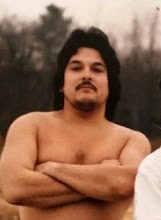~~~~~~~~~~~~~~~~~~~~~~~~~~~~~~~~~~~~~~~~~~~~~~~~~~~~~~~~~
At least six recent fatal crashes of charter jets and small airliners have exposed failures in the Federal Aviation Administration's oversight of for-hire air carriers, according to accident files and investigators. In nearly every case, the failures were discovered by the National Transportation Safety Board (NTSB) and not the FAA.
Charter operators fly planes on a for-hire basis and are considered the air taxis of the aviation system, scheduling flights at the whim of customers. The flights accounted for 249 deaths between 2003 and 2008. Large commercial airline accidents killed 107 people during the same period.
"We've got serious violations of the public trust," said former NTSB board member Kitty Higgins.
Recent NTSB investigations into crashes that killed 13 people found numerous problems with enforcement. In each case, the fatal accidents happened on planes with nine or fewer seats:
• After the crash of a jet near Milwaukee on June 4, 2007, that was carrying a lung transplant team from the University of Michigan, NTSB investigators discovered that the charter company's chief pilot, the captain of the fatal flight, was a convicted drug runner. Company training records for pilots were also falsified.
• The crash March 4, 2008, of a jet in Oklahoma City revealed that a helicopter company helped arrange a jet flight for businessmen in spite of the fact that it was authorized to fly only helicopters.
• The investigation into a Dec. 23, 2003, crash of a chartered jet in Helendale, Calif., revealed that the plane should have been grounded. One FAA inspector had ordered that the plane not fly because the owner could not document maintenance, but another inspector gave the OK.
The issue has come up repeatedly in other accidents. The NTSB found that "inadequate oversight" by the FAA had contributed to the cause of a 2003 accident in Teterboro, N.J., in which a chartered jet skidded off the runway.
The FAA's Flight Standards Service director, John Allen, did not address the specific accidents but called the agency's inspections "thorough." He said it can be difficult to prove wrongdoing unless inspectors witness illegal acts. The agency is revamping oversight of smaller carriers, he said.
The FAA cannot discuss personnel matters but would take action if it found problems, spokeswoman Diane Spitaliere said.
In some cases, inspectors blamed heavy workloads. The inspector in the Milwaukee crash case told the NTSB that he oversaw 19 companies and described his workload as "busy."

No comments:
Post a Comment